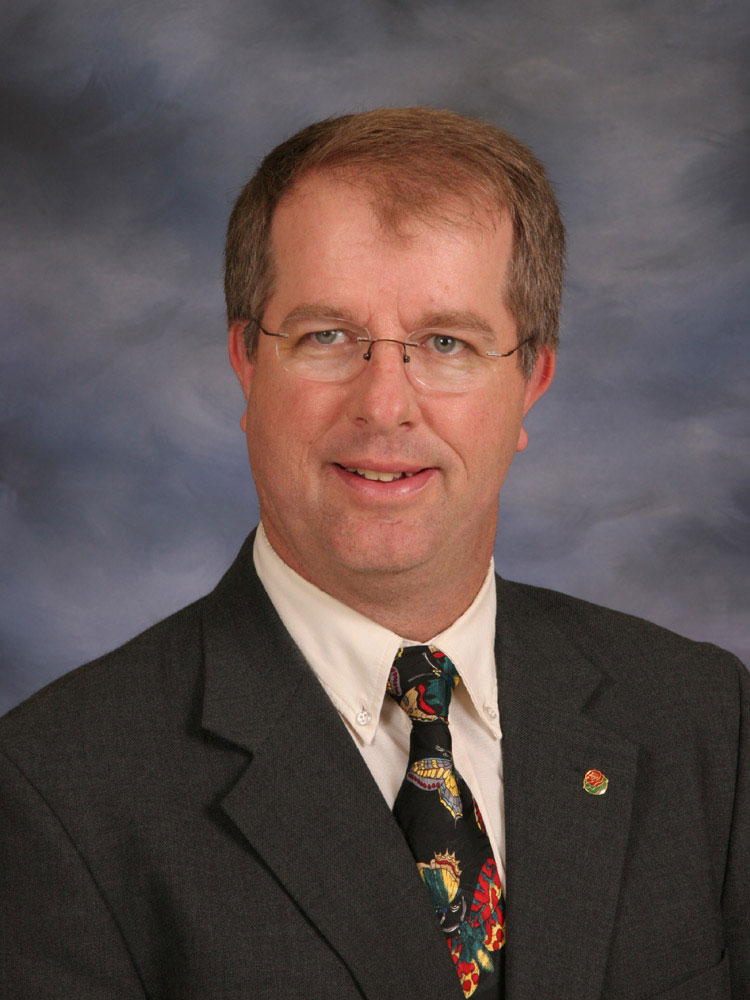Entomologists Study Potential Environmental Impact of Energy Crop
If and when the technology to produce biofuel from grass, wood and crop residue becomes economically feasible on a large scale, the agricultural ecosystem in Arkansas and elsewhere might be altered with the addition of crops such as switchgrass, said Tim Kring, University of Arkansas Division of Agriculture entomology professor.
Kring is leader of a multi-state project to study the impact of bioenergy crops on pests, natural enemies and pollinators in agricultural and non-agricultural landscapes.
The project is supported by a grant of $938,105 for five years from the Agricultural and Food Research Initiative, which is a competitive grants program of the U.S. Department of Agriculture's National Institute of Food and Agriculture.
Forty acres of switchgrass will be planted for the study this spring near DesArc by a cooperating farmer, Adam Chappell, who has a master's degree in entomology from the U of A. Although only a research plot, it will be the largest switchgrass acreage in the state and will allow the researchers to study insects in the switchgrass, nearby fields of other crops and the non-crop landscape, Kring said.
Co-investigators Kristopher Giles and Kristen Baum at Oklahoma State University will gather data on insects in and around large acreages of commercial canola that have been planted in recent years since installation of a canola crushing plant in Oklahoma City. Brian McCornack at Kansas State University will study both crops in smaller scale plantings.
The dynamics of insect population movements between canola, an oil-seed crop, and surrounding crops are similar to those in grasses, Kring said.
"An important series of questions we hope to answer is the impact of a large acreage of switchgrass or canola on the insect dynamics in other crop fields or the non-crop landscape," Kring said. "Will switchgrass be a sink that attracts insects from other fields or a source, providing a nursery from which insects move into other fields?
"We will be looking at the sink/source relationship for insect pests, beneficial insects and pollinators such as honey bees," Kring said.
"Our experience with switchgrass has mainly been in natural prairies, but it typically represents less than 30 percent of the plants in a prairie ecosystem," Kring said.
James Hagler at the USDA Agricultural Research Service Western Cotton Research Laboratory in Phoenix will lead the team's use of a new method to followthe movement of insects. Hagler and colleagues developed a unique protein marker-based technique to track insect movement based on simple common proteins found in trapped insects. The current study will be one of the largest deployments of this technique, Kring said.
Other co-investigators in Arkansas are entomologists Rob Wiedenmann in Fayetteville and Scott Akin, based in Monticello, and agronomist Chuck West, Fayetteville, who specializes in grass crops.
Topics
Contacts
Howell Medders, coordinator
AGCS
575-5647,
hmedders@uark.edu
Headlines
U of A's Inspirational Chorale Makes Its Carnegie Hall Debut
The U of A's Inspirational Chorale took center stage at Carnegie Hall in March, performing under the direction of professor Jeffrey Murdock to a packed audience at the iconic Stern Auditorium.
The State of Economics With Mervin Jebaraj Set for June 5
U of A economist Mervin Jebaraj will analyze state's economic trends and regional issues in an upcoming talk. Preregistration is required by May 31.
Faculty Demonstrate Dedication to Student Success Through Teaching Credentials
Eight faculty members from across the U of A have earned the prestigious Association of College and University Educators certification in Effective College Teaching.
Artificial Intelligence, Machine Learning Boost Arkansas Animal Science Research
Aranyak Goswami, a bioinformatics specialist, will work with three different departments to boost the research arm of the U of A System Division of Agriculture.
College of Education and Health Professions Doctoral Student Picked for Grosvenor Fellowship
Jessica Culver, a doctoral student in the College of Education and Health Professions Adult and Lifelong Learning program, has been selected as a member of the 2024 Grosvenor Teacher Fellowship.





